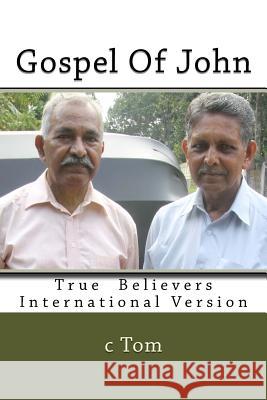Gospel Of John » książka
Gospel Of John
ISBN-13: 9781530413362 / Angielski / Miękka / 2016 / 176 str.
Gospel of John was written between 90 AD and 110 AD. John made Jesus the eternal God who created the whole Universe. According to John's Gospel, "in the beginning there was the word, the word was with God, and the word became flesh and lived among men whom he created." In 325 AD, the Nicaea conference convened by Roman Emperor Constantine, adopted the Gospels attributed to Mark, Mathew, Luke and John as the Canonical (legal) Gospels. Dozens of other Gospels were burned and those who did not agree that Jesus was God, especially followers of Arien, were beheaded and the Nicaen Creed was unanimously accepted as the basis of Christian faith. The pagan Roman celebrations and holidays were re-named as Christian celebrations and holidays. The verse (JN.21: 24 'This is the disciple who testifies of these things, and wrote these things: and we know that his testimony is true.') is commonly misunderstood to mean the un-named 'disciple whom Jesus loved' wrote the 'Gospel of John'. This verse means only that the disciple whom Jesus loved most, wrote down the last events described in the gospel. Gospeler John used those writings as one of the sources for his Gospel. The verse says, 'we know that his testimony is true'. That means, 'we' which includes Gospeler John, believed the testimony of the disciple is true. If the Gospeler himself was the disciple, he would not have written in third person like that. This study Bible explains the meaning of the verses in context. Different points of view are presented in long commentaries and the reader is left to draw his own conclusions.
Zawartość książki może nie spełniać oczekiwań – reklamacje nie obejmują treści, która mogła nie być redakcyjnie ani merytorycznie opracowana.











